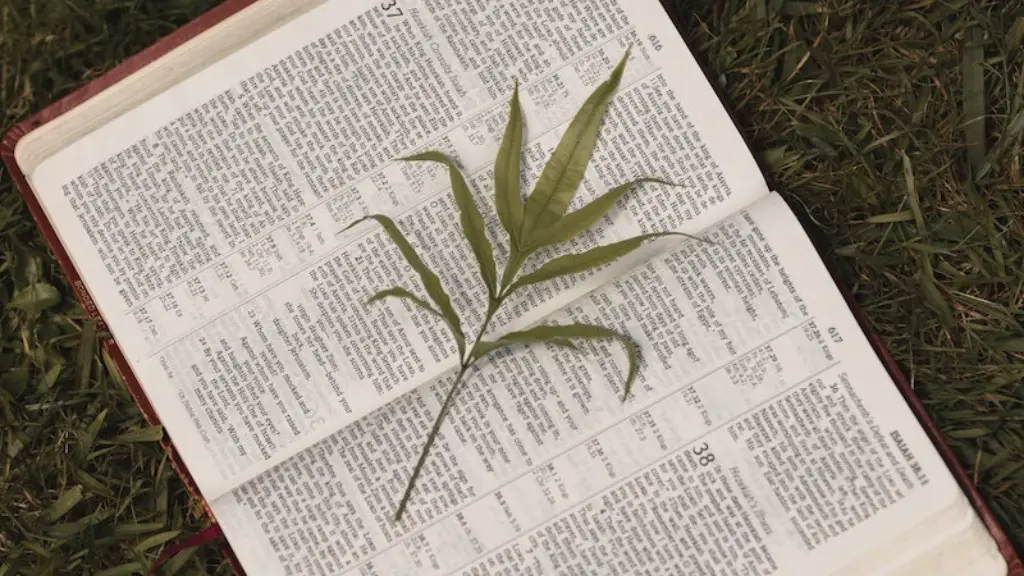Definition of Burial and Cremation
Cremation and burial are two of the most common methods of disposing of a dead body. Cremation is the burning of a corpse, typically in a special furnace or container. The remains of the body are then converted into cremated ashes. Burial, on the other hand, is the practice of laying a corpse in the ground after it is typically prepared through embalming and placed in a casket. Both of these practices have religious implications, but what does the Bible say about cremation vs. burial?
Biblical References to Burial and Cremation
The Bible does not explicitly state whether cremation or burial is the preferred method of disposing of a dead body. However, there are several references to burial in the Bible, suggesting that it was the preferred practice for disposing of the dead. For example, the book of Genesis states that Abraham buried Sarah in the Cave of Machpelah, and in the book of Kings, it is written that the prophet Elijah was buried. The New Testament also mentions the burial of Jesus in a new tomb.
In contrast, there are no explicit references to cremation in the Bible. However, there are several passages that mention the practice of burning the dead in times of distress, as a form of punishment, and as a result of divine judgement. For example, the book of Jeremiah mentions that the bodies of wicked people “shall be fuel for the fire”.
Common Attitudes Toward Burial and Cremation
Most Christian denominations today do not have an official stance on cremation vs. burial. However, many denominations and churches follow the traditional view that burial is the preferred method of disposal. This is likely due to the fact that burial was the predominant method for disposing of the dead during the time of Christ, as well as the numerous references to burial in the Bible.
Many churches also state that cremation should be discouraged, as it can symbolically represent a denial of bodily resurrection from the dead, which some Christian denominations believe in. This view has become increasingly popular in conservative Christian circles, as cremation has become more accessible and popular in recent years.
At the same time, there are some Christian denominations that are more accepting of cremation. These denominations are generally open to cremation as a viable option for the disposal of the body, as long as the remains are not scattered or disposed of in an inappropriate way. Some denominations even allow for the use of cremation urns in church ceremonies.
The Bottom Line
Ultimately, there is no clear answer to the question of what the Bible says about cremation vs. burial. While there are several references to burial in the Bible, there are no explicit passages that state clearly that burial is the preferred method of disposal for the dead. This has led to different interpretations among different denominations and churches, with some accepting cremation as a viable option and others discouraging its use.
Memorials and Remembrance Services
When making the decision of cremation vs. burial, it is important to consider the type of memorial service or remembrance ceremony that you would like to have after the death of a loved one. Even if you are burying the remains, you can still have a memorial service at the burial site. In some cases, it is possible to include the cremation urn at the memorial service. This can be a meaningful way of honoring the deceased and providing closure for the family and friends. As such, it is important to consider options for memorial services and remembrance ceremonies when making the decision about cremation vs. burial.
Life Insurance and Cremation
When considering cremation vs. burial, another factor to consider is the life insurance policy of the deceased. Depending on the policy, the life insurance company may provide for the cost of the burial, funeral, or cremation. It is important to check the policy to determine if it covers some or all of the costs associated with the cremation or burial.
The Impact of the Environment
Finally, when deciding between cremation vs. burial, one should also consider the impact on the environment. Burial requires space and the use of resources, while cremation has a lower environmental impact. Cremation can also be more cost-effective, as it typically requires less preparation and costs less than a traditional funeral.
Location and Regulations
Before making a decision, it is important to consider the location and regulations of the place where the cremation or burial will take place. Different states have different laws and regulations, so it is important to research the specific laws and regulations of the area in question. This will help to ensure that the cremation or burial is done in accordance with the law, and that it will be done in the most respectful and meaningful way possible.
Afterlife Beliefs
Finally, when deciding between cremation and burial, it is important to consider the afterlife beliefs of the deceased. While some may believe that the body should be buried, others may express a different preference. For example, some may prefer to have their remains scattered in a particular place, while others may prefer to have their ashes buried at a cemetery. Taking the afterlife beliefs into consideration can help to ensure that the deceased is honored in the most meaningful way possible.


